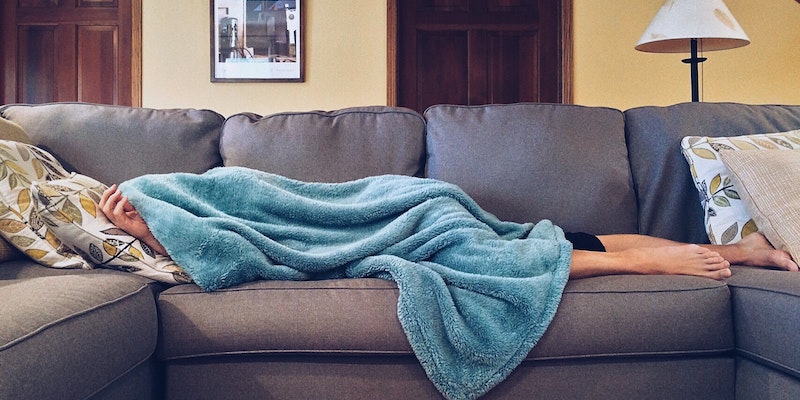Navigating the World of Sleep Disorders.
2023-10-11 00:00:00 By Madison Evans
Common sleep disorders are chronic disorders that impair sleep. Having trouble falling, staying, or getting a good night's sleep is a sign of a sleep problem. Sleep problems cause more than daytime tiredness. They can impair mood, energy, and stress-coping. Advanced sleep phase disorder can cause weight gain, higher risk of car and work accidents, lower job performance, memory difficulties, and strained relationships due to irritability and cognitive loss.
Sleep issues must be understood and treated for optimal health and everyday functioning.
Symptoms
The following are some of the possible common sleep disorders symptoms:
- Snoring, gasping, or choking sounds that wake you up at night
- Having to walk about to unwind and feel better
- Inability to move when first awakening
- Having a hard time sleeping quickly
Unpleasant daytime symptoms of sleep disturbance are:
- An inability to shake tiredness during the day
- Behavior alterations
- Mood swings
- Need help getting things done
- More frequent instances of accidents and falls as a result of drowsiness.
Causes
There are many factors causing common sleep disorders. These elements may be broken down into the following categories:
The Physically Disturbing Factors
- Various medical issues, such as arthritis, migraines, or fibromyalgia, cause ongoing pain.
- Health issues like sleep apnea repeatedly at night.
- Negative mental health consequences from things like sadness and anxiety.
Ecological Considerations
- Uncomfortable or too bright illumination
- Harsh environmental conditions
- Stresses like losing a job
However, difficulties like persistent sadness, chronic stress, or nocturnal discomfort owing to pain or other physical conditions may contribute to long-term or chronic insomnia, which manifests at least three nights a week for a minimum of three months.
Types

Here is the common sleep disorders list:
- Isnomia
- Sleep Apnea
- Circadian Rythm Disorder
- Restless Leg Syndrome
- Oversleeping
Isnomia
A study revealed that about 33% to 50% of adults suffer insomnia. Drowsiness and difficulties sleeping or keeping asleep characterize this illness. Stress typically causes sleeplessness to rise. Chronic insomnia might develop if symptoms last three months or longer. Poor sleep habits, sleep environment changes, drugs, and medical conditions like asthma or sleep apnea increase insomnia.
Cognitive-behavioral therapy is the primary insomnia treatment. This treatment teaches people about their sleep habits and overcoming personal sleep difficulties. Healthcare practitioners may suggest sleep-improving drugs. Sleep deprivation affects everyday functioning, mental sharpness, and physical health, making insomnia treatment essential. Insomnia is one of the most common sleep disorders and may be treated by lifestyle changes, a healthy sleep cycle, and improved quality of life.
Sleep Apnea
Sleep Apnea can be very dangerous, which causes at least five breathing disruptions and choking during sleep. These disruptions lower oxygen levels and sleep quality. Sleep apnea can cause excessive blood pressure, heart disease, and stroke without treatment.
Sleep apnea is advanced sleep phase disorder and can be treated with CPAP, improving airflow and avoiding airway collapse. Other possibilities include mandibular advancement devices and nerve stimulators, which move the lower jaw and tongue forward to expand airways. Surgery to remove obstructive nasal and throat tissue is another option.
We must acknowledge the health risks of snoring and sleep apnea. Getting a good night's sleep and reducing health risks requires proper treatment and management. This illness may be managed correctly to enhance general health and minimize the risk of severe health issues.
Circadian Rythm Disorder
Circadian rhythm disorders include early riser or late sleeping and disturbed sleep-wake cycles. An intrinsic biological clock controls these rhythms, not the day-night process.
Many people try to adjust to their preferences, but they interfere with daily life, affecting productivity and well-being. Traveling across time zones (jet lag) or working nights might further upset natural patterns.
Insomnia, tiredness, and mood swings can come from the body's internal clock conflicting with one's routine. Treatment aligns with brain rest and wakefulness cues. A low dose of melatonin and intense light are included. Sleep hygiene strategies, including exercise and minimizing screen time before bed, assist in correcting the circadian cycle and maintaining the schedule.
Restless Leg Syndrome
Movement disorders include restless leg syndrome, which makes it hard to sit still at night. Health issues (e.g., renal illness), drugs (e.g., antidepressants), and pregnancy can cause these unpleasant or painful cravings in 7% to 10% of people.
Managing these conditions involves addressing their causes. For patients with deficiencies, doctors may prescribe prescription changes and iron supplements. Prescribed drugs and foot wraps can also relieve symptoms. Managing movement problems improves the quality of life and ensures peaceful, uninterrupted sleep, which is essential for health.
Oversleeping
For hypersomnia sufferers, excessive sleep is a distinct difficulty. Hypersomniacs sleep over 10 hours a night yet still feel groggy. Hallucinations and sleep episodes can complicate sleep habits.
Narcolepsy, a neurological system illness caused by orexin brain chemical deficit, causes cataplexy, especially when emotions are intense. Hypersomnia is different from sleep deprivation, which recovers with rest. Treatment includes enhancing sleep hygiene, strategic napping, driving safety, and stimulant prescription as needed.
Do not suffer from severe exhaustion without support. Self-medication or self-management of sleep issues can be harmful. To get the proper diagnosis and therapy, consult a primary care doctor for a sleep specialist referral or undertake a thorough evaluation yourself. Interventions and counseling can significantly enhance quality of life.
Treatments

Common sleep disorder remedies differ by condition and cause. Proper diagnosis and treatment require a medical professional. However, these five proven sleep problem therapies are:
CBT-I for Insomnia
Structured CBT-I helps identify and alter sleep-affecting negative thoughts and behaviors. The mental components of sleep problems and ways to improve sleep patterns are covered.
CPAP Therapy
Sleep apnea therapy often involves CPAP, and sleeping with a mask on it improves breathing and reduces sleep disturbances by providing constant air pressure.
Medications
To treat sleep disorders, medicines may be administered. Sedatives or hypnotics for insomnia, antidepressants for sleep disturbances, or drugs for underlying health conditions can help.
Lifestyle Changes
Healthy lifestyle changes promote sleep. This includes sticking to a sleep schedule, adopting a calming nighttime ritual, controlling stress with meditation or yoga, and avoiding coffee before bed.
Light Therapy
Light therapy treats common sleep disorders such as delayed sleep phase syndrome. It includes exposing the body to particular light at precise times to regulate its internal clock and optimize sleep-wake habits.
See a doctor for the best sleep problem therapy, depending on the kind, severity, individual circumstances, and medical history.








